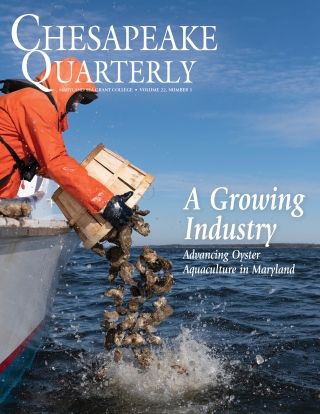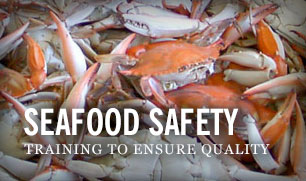Knauss legislative fellowships in Congress help build careers — and they're fun and educational. See our video and fact sheet for details.
Research Publications: UM-SG-RS-2012-10
Title:
Ecosystem metabolism in shallow coastal lagoons: patterns and partitioning of planktonic, benthic, and integrated community rates.
Year:
2012Authors:
Giordano, JCP; Brush, MJ; Anderson, ICSource:
Marine Ecology Progress Series 458 : 21 - 38DOI:
10.3354/meps09719Abstract:
Net ecosystem metabolism (NEM) provides a quantifiable and integrative method for assessing the ecological responses of aquatic ecosystems to anthropogenic disturbance and has been shown to positively relate to nutrient enrichment in some systems. We measured NEM to determine the trophic status of 4 coastal lagoons receiving a range of nutrient loads on the Virginia/Maryland portion of the Delmarva Peninsula, USA. From July 2007 to July 2008, we used the component technique to assess NEM by developing photosynthesis-irradiance curves for both the water column and sediments approximately monthly; we added macroalgal incubations in the summer of 2008. We also measured in situ NEM by the open water method using 2 to 3 wk deployments of data sondes. Component incubations indicated net autotrophy in all 4 lagoons for March to October. No significant relationship existed between NEM and total nitrogen load overall, except for reduced autotrophy in the most enriched system. Light availability, sediment organic content, temperature and depth were all important regulators of NEM. Inclusion of macroalgal metabolism during summer 2008 had varied effects on system NEM. Open water and component methods gave divergent results. We attribute these differences to the adjacent marshes and the assumptions inherent in the 2 methods, demonstrating the need for careful attention to the method of choice for estimating system metabolism in these highly variable, shallow photic systems. Overall, NEM was net autotrophic, dominated by phytoplankton production across our study lagoons, and controlled by multiple factors.
Related Research Project(s) Funded by Maryland Sea Grant:
Maryland Sea Grant Topic(s):
'Related Research Project(s)' link to details about research projects funded by Maryland Sea Grant that led to this publication. These details may include other impacts and accomplishments resulting from the research.
'Maryland Sea Grant Topic(s)' links to related pages on the Maryland Sea Grant website.






